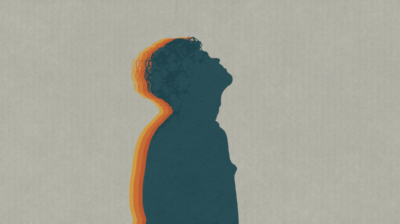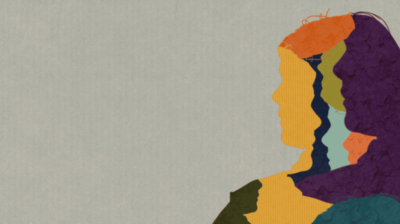Treatments for eating disorder recovery in Ireland
Learn more about the different types of evidence-based treatments that can support your eating disorder recovery.

Trying to recover from an eating disorder on your own can be isolating and difficult. However, eating disorder recovery is possible, and there are services and supports available to support you.
The type of treatment you receive for an eating disorder will depend on the type of eating disorder you have been diagnosed with. In general, treatments for eating disorders include psychological interventions, like psychotherapy, and in some cases, medication. For those with severe medical complications due to an eating disorder, inpatient treatment in a hospital may be required.
In addition to receiving professional support, reaching out for support from trusted family and friends can make a big difference. Most recovery programmes involve family in the process, helping with practical things like meal planning and routines and offering emotional support. This is especially important if you are under 18, where family involvement is a key part of recovery.
Read more about eating disorder signs, symptoms and behaviours in our factsheet on the different types of eating disorders.
In this factsheet, you will find information covering:
Enhanced Cognitive Behavioural Therapy (CBT-E)
Family-Based Treatment (FBT)
Dialectical Behaviour Therapy (DBT)
Medication
In-patient treatment
Managing and preventing relapse
Treatments for eating disorder recovery
People under the age of 18 often attend family therapy rather than individual therapy. Family-based treatment (FBT), a form of family therapy adapted for young people with anorexia nervosa is discussed in the next section. Adults over the age of 18 may choose to take part in individual talk therapy or group therapy.
Getting to a healthy weight
Psychological interventions, like talk therapy, are usually a core part of eating disorder recovery. However, a person may be more likely to benefit most from talk therapy when they are “weight-restored.” Someone who is weight-restored has regained enough weight to be within the minimum threshold for healthy weight. People who are experiencing severe malnutrition will have a reduced capacity to think, regulate emotions, and make decisions. This can make the exploration of deeper mental and emotional issues more difficult.
What is Enhanced Cognitive Behavioural Therapy (CBT-E)?
There are several types of cognitive behavioural therapy (CBT) specifically for people with eating disorders. The term “individual-eating-disorder-focused cognitive behavioural therapy” or “CBT-ED” refers to these types of therapies. CBT-E is the most commonly used in both outpatient, those receiving care outside hospital, and inpatient, those receiving care in hospital, settings. Psychotherapists and psychologists use CBT-E to support people in their recovery from a range of eating disorders, including anorexia nervosa, bulimia nervosa, and binge-eating disorder.
How many CBT-E sessions will I have to attend?
When a person is not severely malnourished, they may expect to attend an initial assessment session, followed by 20 weekly treatment sessions of 50 minutes each. When a person is underweight when starting CBT-E, they can expect to attend about twice the number of sessions, since the early stage of therapy will be focused on regaining weight.
What can I learn from CBT-E?
CBT-E looks at the ways that our thoughts affect our behaviours and feelings specifically in the context of an eating disorder. Through CBT-E, a person can learn to:
- Create stable eating patterns and routines that support health
- Understand what triggers unhelpful eating patterns and the processes that maintain them
- Build the capacity to manage emotions and daily setbacks
- Address unique concerns about diet and weight
- Maintain stable eating patterns and a more positive relationship with food
Family-Based Treatment (FBT) for anorexia nervosa
Children and young people under the age of 18 usually attend systemic family therapy rather than individual therapy. The most common treatment for adolescents with anorexia who do not require inpatient treatment is family-based treatment (FBT). FBT is an evidence-based, structured approach to help young people recover from eating disorders within their families. In FBT, a specialised FBT therapist works with families of children and/or adolescents with anorexia to restore the young person’s weight and healthy eating habits.
The FBT therapist’s role is to help and support caregivers in helping their child to make changes to their eating behaviours. However, considering the significant medical risks associated with eating disorders, an FBT therapist often works with other professionals who can provide multidisciplinary support. These professionals may include paediatricians, GPs, child and adolescent psychiatrists, and clinical psychologists, among others.
What are the three main phases of FBT for young people?
FBT has three main phases:
- Phase 1. Weight restoration: In this first phase, caregivers and family members help the young person change their eating habits to return to a healthy weight. They make food-related decisions, such as what and how much to eat, and reduce or eliminate exercise during this time
- Phase 2. Handing back responsibility: Once the young person starts to regain a healthy weight, caregivers gradually allow them to make their own food choices based on what is appropriate for their age and situation. This phase helps the young person become more independent while also reshaping family relationships for the better
- Phase 3. Review of adolescent challenges: In the final phase, the therapist checks in on how the young person is doing overall. They look at the young person’s progress, development, and any challenges they might be facing as they grow
Principles of FBT
You may be wondering about how FBT therapy differs from other therapies and what principles it is based on. Some of the key features of FBT include:
- Focus on weight restoration: The goal of FBT is to help a young person return to a healthy weight rather than pinpointing the exact causes of the eating disorder. Recovery is thought to be possible without needing to understand all the factors that contributed to it
- Empowerment of caregivers: The FBT therapist helps caregivers find the best ways to support their child’s recovery, recognising that there is no ‘one-size-fits-all’ approach. Each family’s situation is unique
- Separation of the eating disorder from the person: The eating disorder is seen as an illness separate from the person. This helps caregivers understand that the young person isn’t choosing these behaviours; they feel compelled to act this way and can’t just “stop” on their own. Recognising this can help explain any resistance to treatment and the eating disorder recovery process
- Prioritising behaviour change: Since eating disorders like anorexia can be life-threatening, the therapist focuses on restoring the young person’s weight through behavioural changes first. While emotional issues like low mood or self-esteem are important, it is thought that these aspects of a young person’s well-being will improve once healthy weight and eating habits have been restored
Dialectical Behaviour Therapy (DBT) for bulimia nervosa and binge-eating
Dialectical Behaviour Therapy (DBT) is a type of psychotherapy that can help people manage difficult emotions and behaviours. Although more research is needed to demonstrate its effectiveness for treating eating disorders, research shows that DBT can help people with bulimia nervosa and binge-eating behaviours. DBT may be beneficial because it teaches skills to cope with intense, unwanted emotions, reduce harmful eating behaviours, and improve relationships with food and body image. It also includes motivational strategies to encourage people to stay committed to positive change and teaches problem-solving skills to help replace harmful coping mechanisms with healthier alternatives. DBT focuses on finding a balance between accepting yourself and making positive changes.
DBT is not currently offered to people affected by eating disorders in Child and Adolescent Mental Health Services (CAMHS) or Adult Mental Health Services (AMHS). In public services, the standard treatment for children and young people is FBT, while for adults it is CBT-E.
Medication for eating disorders
In some cases, a GP, psychiatrist, or other medical professional may prescribe mental health medications for people with eating disorders. Antidepressants, for example, can help those experiencing anxiety and depression alongside their eating disorder. These medications may also make it easier for individuals to participate in therapy.
However, it’s important for the prescribing professional to first check whether a person’s eating disorder is causing their symptoms of anxiety or depression. When anxiety and/or depression stem from a person’s eating behaviours, focusing on regaining weight and building healthier eating habits might help more in the long run.
In-patient treatment for eating disorders
In most cases, people with eating disorders can stay at home while attending an outpatient eating disorder clinic or specialist service. However, if a person’s life is at risk due to extremely low weight and malnutrition, they may need inpatient treatment in a hospital. Here, trained health professionals can provide the necessary care and support at a crucial point in the person’s recovery. When weight is extremely low, medical consultants and CORU-registered dieticians monitor weight restoration to ensure it is managed safely.
Learn more about a person’s rights when receiving inpatient mental health treatment.
Managing and preventing eating disorder relapse
Lapses and relapses are a common part of the recovery process for people who have a history of eating disorders. Lapses and relapses can occur for anyone, whether they are in the middle of their eating disorder recovery journey, partially recovered, or have fully recovered some time ago. Experiencing a relapse doesn’t mean you have failed. It’s often a sign that you may be using an old pattern of coping behaviour to manage a set of new challenges or life stressors.
Relapse triggers
Some stressful life situations that might trigger relapse include:
- Major life transitions or disruptions to routine, such as moving house, starting a new job, or ending a relationship
- Traumatic events, such as the loss of a loved one, experiencing abuse, or being in an accident
- An increase in negative thoughts and feelings about your body. An increased tendency to compare yourself to others due to excessive or problematic social media use can contribute to such thoughts and feelings
- Changes in weight or diet
- Social pressures to conform to unrealistic beauty standards
Harmful eating patterns often develop as coping mechanisms in response to stressful situations or traumatic experiences. They may provide a temporary sense of control or relief, making it tempting to return to old habits when facing new challenges. Remember, seeking support from friends, family, or professionals can help you navigate these difficult times and maintain your recovery.
Accessing support is crucial when a person suspects they have relapsed because early intervention can make eating disorder recovery much easier. Seeking help sooner, before compulsive behaviours become habitual, can allow for more effective treatment. Even if you are not currently experiencing a relapse, having strategies to prevent relapse can benefit anyone with a history of an eating disorder.
Minimising the risk of relapse
Below are some of the ways you can support your overall physical and emotional well-being. This, in turn, can help to minimise the risk of relapse.
- Stay connected: Work on maintaining and strengthening relationships with friends and family
- Recognise triggers: Identify and understand your unique triggers for unhelpful thoughts or harmful eating patterns
- Practise self-care: Prioritise activities that support your physical and psychological well-being, including exercise, mindfulness-based practices, and hobbies
- Build supportive coping skills: Find alternative, non-harmful ways to cope with inevitable life stress. This might include reframing your perspective, regulating difficult or unwanted emotions, or talking to someone you trust
- Challenge unhelpful thought patterns: Catch self-critical thoughts and judgments and replace them with more balanced, realistic appraisals
- Build a healthy relationship with social media: Consider mindfully choosing what you follow on your feed, setting boundaries on your screen time, and challenging negative comparisons with others
- Set realistic goals: Break some of your big ambitions into smaller, achievable goals. This can help you gain greater confidence in your abilities and maintain motivation
- Learn to enjoy the process: You may find yourself being perfectionistic about end goals. Try to shift your focus from the outcome to the enjoyment and learning that come from the journey itself
- Seek professional support early: As soon as you begin to notice changes in your eating behaviours or thoughts, check in with a counsellor or dietitian. This can help you stay on track with your recovery
For more information on coping with lapses and relapses, visit Bodywhys.
Feeling overwhelmed and want to talk to someone?
- Get anonymous support 24/7 with our text message support service
- Connect with a trained volunteer who will listen to you, and help you to move forward feeling better
- Whatsapp us now or free-text SPUNOUT to 50808 to begin.
- Find out more about our text message support service
If you are a customer of the 48 or An Post network or cannot get through using the ‘50808’ short code please text HELLO to 086 1800 280 (standard message rates may apply). Some smaller networks do not support short codes like ‘50808’.






